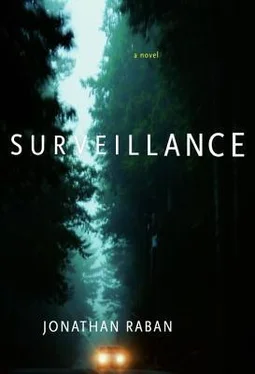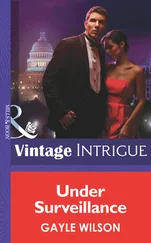Yet Lucy remained on guard, ready if necessary to field two dangerous questions so far unasked: “What’s my dad’s name?” and “Does he know I exist?” They would be hell to handle, but Lucy dreamed that when Alida was nineteen, twenty, twenty-one, they’d be able to share the true story of her conception, woman to woman, fondly and without embarrassment. It wasn’t a story Lucy was the least bit ashamed about, and when Alida was grown up she ought to be able to prize it, laugh over it, tell it to her own lovers as a gift. But it had to be kept secret from her until she was of an age to understand.
It had begun with the Spanish Inquisition of fact-checking at The New Yorker. For eleven days, Lucy had undergone torture at the hands of two humorless peremptory inquisitors, Rosemary and Maureen. Usually the magazine assigned only one fact-checker to each case, but fear of Bill Gates’ phalanx of lawyers had led it in this instance to double the usual allocation of womanpower to the spiked chair, the iron maiden, the rack and the screw. She dreaded the phone ringing. “A couple of people here have read the piece and…” Or, “You mention traveling south on Elm. It’s one-way, going southeast.” Not a sentence of Lucy’s piece was left untouched. She had described visiting the Microsoft campus in heavy rain; a local TV meteorologist had been consulted, and the phrase emended to “steady drizzle.” She had written that talking with Gates had put her in mind of speaking with an autistic, given how he rocked in his chair and evaded eye contact; that passage had been struck out on the advice of a child psychologist, who had sternly opined that “the evidence supplied entirely fails to support the allegation.” Talking to people who’d known Gates in the past, she’d sometimes used a notebook rather than a tape recorder. Called by Rosemary or Maureen, they invariably denied every word they’d said, and, unless it was preserved verbatim on tape, out it went. For “legal reasons,” adjectives and adverbs fell from the piece like leaves from a tree in an October gale. Day by day the piece grew thinner, blander, less her own. She dreaded the ringing of the phone, the “just a couple of details,” the pitiless guillotining of every sentence she was proud of.
But even the Spanish Inquisition came to its eventual end, and, late on a Friday afternoon, her editor called to say that the issue had gone to press and her ordeal was over. “Everyone here likes the piece a lot.” Having come to hate it as a result of Rosemary and Maureen’s brutal ministrations, Lucy said, “I can’t think why — I just wish it could be published under a pseudonym. Why don’t the fact-checkers put their names on it?”
Yet putting the phone down, she was giddy with relief. She had to celebrate. She called Ron, then Jeff, then David, then Alice, but got only their voice mails. She’d try them from her cell later; in the meantime, she meant to down a large and richly deserved martini at the Bookstore Bar in the Alexis.
Hoisting herself onto a stool, she noticed that the man two stools away was reading the “Talk of the Town” section of that week’s New Yorker. He said, she said, he said, she said (entirely free of the stutter that usually afflicted her when talking to strangers), and within minutes of getting her martini she’d told him she sometimes wrote for the magazine on retainer. He had the grace to claim that he remembered one or two of her pieces — even brought up, with no prompt from Lucy, her epic Kurt Cobain interview-epitaph. “I’m way too old for grunge rock, but you made him real to me. I found it very touching.”
His name was Edward; if he told her his last name, she’d forgotten it that very instant. When her cell phone rang in her bag, she reached inside to switch it off. By the time they agreed to have dinner together, she knew that he was an attorney, that his specialty was intellectual property rights, that he was in Seattle for a conference on copyright and the new media, that he’d gone to college at Williams, then on to Yale for law school. His manner was light, quizzical, self-deprecating. She liked his rather-too-big nose and not-too-preppy haircut.
Once they’d been served their first course — Dabob Bay oysters on the half shell — she knew that he had a wife and young son in Westchester County, but that he lived in an apartment in the East Village, traveling most weekends to Mount Kisco to keep in touch with the boy, Asher.
“We have to do something about it soon,” he said. “But as a lawyer I’m more afraid of the mechanics of divorce than most people. I’m like the dentist who neglects his own teeth for fear of the drill.”
For her part, Lucy spun the tale of Maureen and Rosemary into bright comedy, casting herself in the part of dupe. Edward probed her for details. He wanted to know the reason for every cut and change.
“Total bullshit,” he said, producing legal arguments that validated nearly all of Lucy’s original phrasings, elegantly wiping the floor with Rosemary and Maureen.
“God,” she said, “I wish I’d had you standing at my elbow for the last two weeks.”
“Honestly, there’s no place on Earth I’d rather have been.” He made the remark easily, with a smile, showing those glamorous metropolitan manners that surely reflected the enviable milieu in which he must move in Manhattan.
This was just after the halibut arrived.
Never once did he put the moves on her. The progression from dessert to nightcaps and coffee in his suite to the bedroom was a safe and relaxed glide, with much laughter along the route. From the moment she stepped into the elevator, she knew that he knew that she was going to spend the night, and that neither of them was going to make a fuss of it beforehand or after.
As they helped each other undress, Lucy pointed to her thighs. “Cellulite,” she said.
“You’re perfect, Lucy. I hate those bony sylphs.”
“Is your wife a bony sylph?”
“Bony, yes. Sylph, no.”
In sex, too, he was a paragon of good manners, both teasing and patient, waiting to come until after she did, which was surprisingly quickly and strongly. Still on East Coast time — midnight for her, three A.M. for him — he was asleep in minutes, with her snuggled up behind him, her arm crooked around his waist, her open palm on his very slightly paunchy stomach.
She woke before six, with no hangover, no bewilderment as to her whereabouts, no regrets. He was giving a paper that morning, and she had a hair appointment at 8:45. As she separated herself from him, limb by cautious limb, a phrase came into her head: “the tenderness of the one-night stand.” He stirred for an instant, then rolled back and began to snore.
She picked her clothes up from the floor and went into the living room to dress. She came back to the bedroom with a stub of old lipstick from the bottom of her bag, to write a message on his dressing-table mirror. That was so sweet…thank you. Talk well today. Must go (Dr.’s appt.) Fondly, Lucy. Then she wrote her phone numbers, landline and cell, in unmissably bold numerals. Before leaving, she rested her hand on his sleeping haunch through the bed linen. Snore, snore. She was glad he was sleeping in.
That afternoon, still in a buoyant mood, she traded in her old rust-bucket Honda for the Spider — a car she’d fancied, in its various incarnations and remodels, ever since she watched Dustin Hoffman drive one in The Graduate, a movie already ten years old by the time she saw a TV rerun in Missoula. Gingerly maneuvering the new car back to the Acropolis, she looked forward to showing it off to Edward. Perhaps they could go Dutch tonight at Ray’s Boathouse, which would give her an excuse to put the Spider through its paces.
Читать дальше












